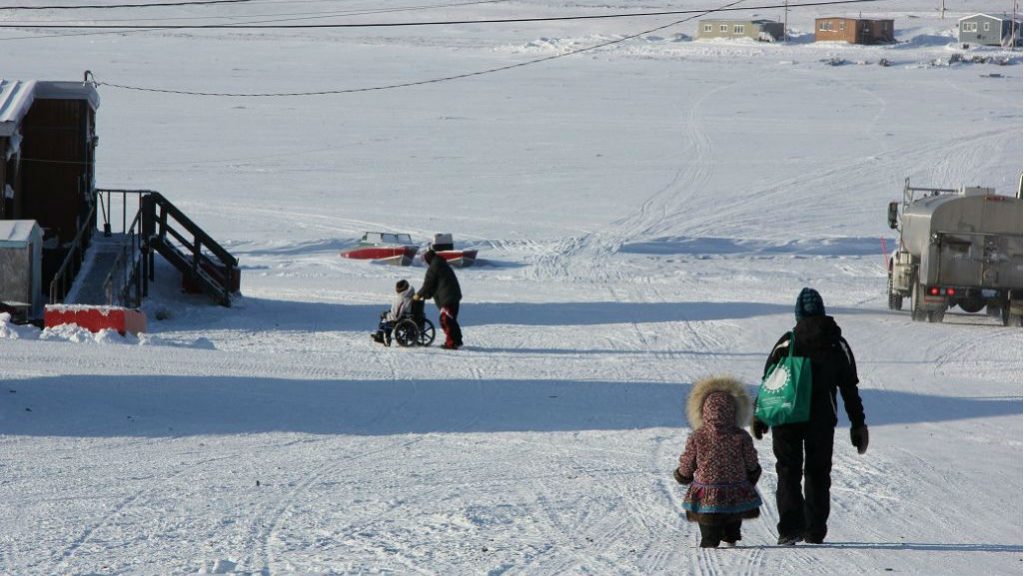Canada’s long-term neglect of Arctic must stop says Senate report

Canada’s neglect of the Arctic has gone on for too long and northern residents are paying the price, says a report by the Special Senate Committee on the Arctic released on Tuesday.
“Crises remain unresolved and the well-being of residents, left to tackle enormous challenges on their own, has been overlooked,” the report said, stressing that the lack of infrastructure development, housing, educational possibilities and access to clean water and sanitation, continues to plague northern communities.
“It is essential that the Government of Canada recognize that the Arctic requires greater attention, investment and consistent support from the federal government, to complete Canada’s nation-building project. The impact of federal underinvestment hits hardest on the Arctic’s greatest asset, Indigenous youth.
‘An urgent wake-up call’
The committee was established in 2017 to study the “significant and rapid changes to the Arctic and impacts on original inhabitants” and to issue recommendations to the federal government as it worked on its new Arctic Policy Framework, expected to be released later on this year.
The committee looked at five different areas: economic development and infrastructure, Arctic peoples and communities, protecting the environment and biodiversity, Arctic science and Indigenous knowledge, and the Arctic in a global context.

In all, the report titled Northern Lights: A Wake-Up Call for the Future of Canada makes 30 recommendations covering everything from the urgent need for infrastructure investment, more focus on the global context of the Arctic and closer partnerships with territorial governments and indigenous communities on everything from education and economic development to science, culture and environmental protection.
“Northerners are on the front lines of these rapid changes and, as such, are best positioned to make decisions on how to quickly and effectively respond to them,” said Dennis Patterson, a senator and chair of the committee, in a news release on Tuesday. “No one understands the realities of the North like those who live there.”
Economy
- devolution of federal programs and services related to the Arctic and northern regions to local, territorial and Indigenous governments
- greater financial support towards the implementation of comprehensive land claims agreements, including land use planning processes and governance of regulatory boards
- establishment of an Arctic Infrastructure Bank to fund new infrastructure and mitigate the effects of climate change on existing infrastructure
Culture
- take immediate measures to address the social determinants of health that takes into account Indigenous norms, values and languages in the Arctic and northern regions
- increased investment in the Northern Aboriginal Broadcasting Program
- development of multi-use community centres for the practice of arts, culture and language
Science & Environment
- create mechanisms for Arctic Indigenous input into federal research governance bodies
- investment in the development of infrastructure and Indigenous environmental stewardship initiatives that support a conservation economy
Global context of the Arctic
- increase support for international Arctic scientific cooperation
- enhanced maritime and aerial situational awareness of the Canadian Arctic
- establishment of a Pan-Arctic Infrastructure Bank at the Arctic Council and ensure an improved investment climate and trade flow in the circumpolar Arctic Region
“The North IS the future of Canada in countless ways,” the report said. “The issues are urgent; the recommendations require immediate action.
All three northern territories visited
The senate study covered all three of Canada’s northern territories: Yukon in the northwest, the Northwest Territories, and the eastern Arctic territory of Nunavut; as wells as Nunavik, the Inuit region of northern Quebec; Nunatsiavut the Inuit region in the Atlantic province of Newfoundland and Labrador; as well as northern part of the province of Manitoba.
The committee travelled to Kuujjuaq, Nunavik; Iqaluit, Baker Lake, and Cambridge Bay, Nunavut; Yellowknife and Inuvik, in the Northwest Territories and Whitehorse, Yukon during the preparation of their report.
Write to Eilís Quinn at eilis.quinn(at)cbc.ca
Related stories from around the North:
Canada: Canadian Inuit organization launches climate change strategy, CBC News
Finland: Finland must further reduce logging to preserve carbon sink, environmental institute says, Yle News
Greenland: Tall ice cliffs are slumping and may trigger rapid sea-level rise, study finds, CBC News
Iceland: Iceland talks Arctic, Trump’s ditching of climate accord, with U.S. Secretary of State, Eye on the Arctic
Norway: June heat wave hits Northern Europe, The Independent Barents Observer
Russia: Inuit from Alaska, Canada, Greenland & Russia condemn U.S. torpedoing of Arctic Council declaration, Eye on the Arctic
Sweden: Comparing emissions taxes for planes and cars, Radio Sweden
United States: U.S. House calls for more research on ocean acidification, Alaska Public Media Network



